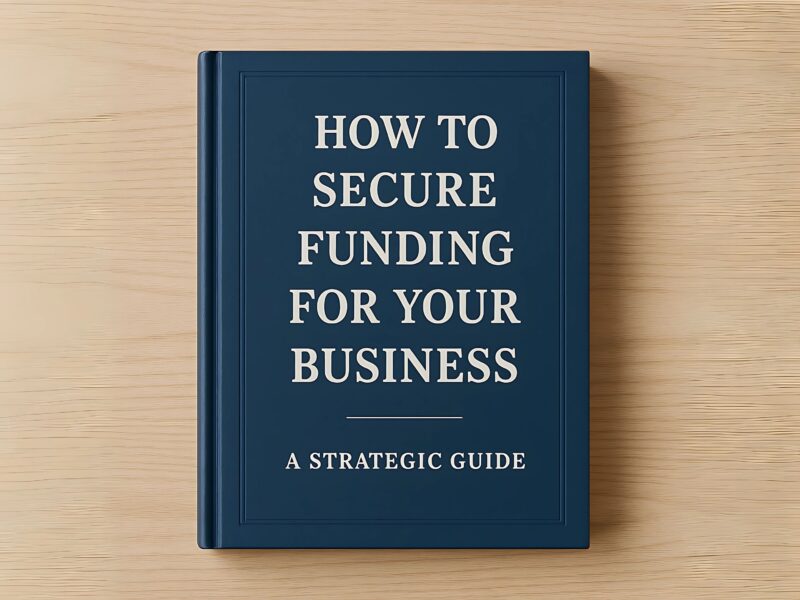How to Secure Funding for Your Business: A Strategic Guide

Quick Tip: Before seeking funding, ensure you have a clear understanding of exactly how much capital you need and how you’ll use it to generate returns.
99% of businesses fail because they run out of cash.
Yet, most founders chase funding the wrong way, pitching too early, taking bad deals, or relying on hope instead of strategy.
If you need funding, here’s how to actually secure it without wrecking your business.
Know Your Funding Options
Different businesses require different capital sources.
Consider:
- Bootstrapping (self-funding, best for control & lean startups)
- Bank Loans (SBA, term loans, lines of credit)
- Investors (VCs, angel investors, private equity)
- Revenue-based Financing (funding based on sales)
- Grants (free money, but competitive)
Get Your Financials in Order
No investor or lender funds chaos.
You’ll need:
- A solid business plan
- Cash flow projections (Can you pay them back?)
- Profit & Loss statements (show financial health)
- Collateral (for secured loans)
Leverage SBA & Bank Loans
Banks love businesses with:
- Strong financial history
- Profitable operations
- Clear repayment ability
SBA loans can be easier to secure for small business owners (10-20% down needed).
Pitch to Investors the Right Way
If going the VC or angel route:
- Show market opportunity (Is it big enough?)
- Have traction (Revenue? Users? Growth?)
- Prove why you (Your expertise + execution plan)
- Be clear on what’s in it for them (ROI, exit plan)
Explore Alternative Financing
- Revenue-based financing (funds based on sales)
- Factoring (sell invoices for upfront cash)
- Crowdfunding (public backing, pre-sales)
Build Relationships with Lenders & Investors
Funding is about trust.
Start networking before you need the money.
Don’t Just Take Any Money
Funding comes with terms & trade-offs:
- Debt = repayment risk
- Equity = giving up control
- Alternative financing = high fees
The key? Pick the right funding for your stage & strategy.
Conclusion
Securing the right funding at the right time can mean the difference between business success and failure. Take time to research your options, prepare thoroughly, and choose funding sources that align with your long-term business goals.
Side Note: Consider creating a funding roadmap that aligns with the different growth stages of your business, rather than seeking all funding at once.
I’d love to know what’s been your best (or worst) funding experience?
